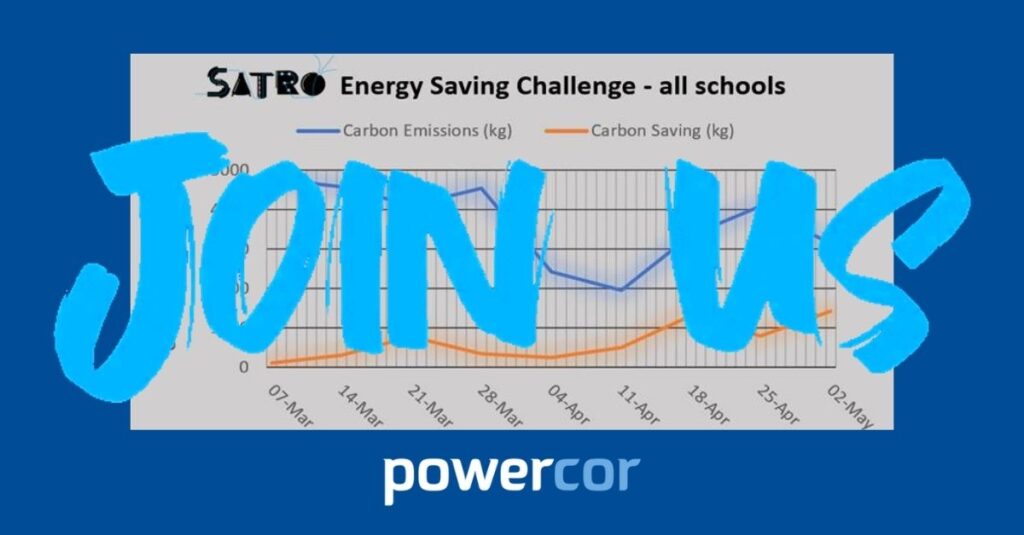ECA Video Series Launched in the House of Lords

We were recently delighted to partner with The Electrical Contractors’ Association (ECA) and Content With Purpose (CWP) to produce a forward-looking digital series exploring the transformative journey of electrification in the UK. Our role was to be part of a series of short films and interviews, telling the story of our apprentices and how Powercor […]
Energy efficiency and solar power in schools

As UK schools strive to enhance learning environments, it’s important for them to take the lead when it comes to the environment. Schools can make a substantial impact when it comes to energy efficiency and the use of solutions such as LED lighting and solar power will typically make a significant difference. With escalating concerns […]
10 key trends and statistics shaping the solar power industry in 2025

10 key trends and statistics shaping the solar power industry in 2025
The solar power industry is poised for significant advancements in 2025, driven by technological innovations, policy shifts, and increasing global demand for renewable energy. Here are ten key trends to watch:
1. Technological innovations in solar panels will increase in 2025
Advancements in solar panel technology are enhancing efficiency and reducing costs. Notably, Qcells has achieved a world record efficiency of 28.6% for a large-area silicon solar cell topped with perovskite, potentially reducing the space required for installations.
2. Solar energy storage capacity will continue to growth rapidly
The integration of energy storage systems is addressing the intermittency of solar power, improving grid stability, and enabling energy availability during peak demand or nighttime. This trend is particularly significant in the UK, where it is predicted that battery storage capacity will increase from the current level of 2.1GW to around 24GW by 2030.
3. Community and decentralised solar projects will expand
Community solar projects are expanding access to solar energy for those unable to install individual rooftop panels. In the UK, large-scale solar farms are becoming increasingly common, with over 1,336 operational sites and more planned, enhancing energy accessibility and contributing to decarbonization objectives.
4. In the UK, there will be significant investment in solar infrastructure
Major investments are propelling the solar industry forward. In the UK, the government’s clean energy plan will require investments in excess of £40 billion between 2025 and 2030 to drive renewable output, upskill workers and decarbonise the economy.
5. The corporates adoption of solar energy will continue
Businesses are increasingly adopting solar energy to meet sustainability goals and reduce operational costs. In the UK, companies like Marks & Spencer and Tesco entering into long-term solar power infrastructure projects, reflecting a broader corporate shift towards renewable energy sources.
6. Policy support and government targets will drive the solar industry in 2025
The UK government has laid out ambitious targets for solar energy capacity expansion as part of its plans and commitment to decarbonising the electricity system by 2030. The government’s Clean Power 2030 Action Plan—unveiled in December 2024—aims to increase solar capacity to approximately 45–47 gigawatts (GW) by 2030.
7. There will be further advances in solar panel recycling
As solar installations age, recycling technologies are developing to manage end-of-life panels, recovering valuable materials, and reducing environmental impact. In 2024, the global solar panel recycling market was worth US$ 1.87 billion in 2024 and is expected to exceed US$ 118.54 billion by 2037, expanding at a compound annual growth rate of over 37.6% during the period 2025 to 2037.
8. Artificial intelligence will play a key role in both solar energy management and usage
Artificial intelligence (AI) will both help to optimise solar energy production through improvements in supply-chain efficiency, but also drive up the demand for renewable energy via ever-expanding energy-hungry data centres.
9. Floating solar farms will continue their expansion
Floating solar farms, installed on bodies of water, are emerging as a solution to land constraints, offering efficient energy production without occupying valuable land resources. This innovative approach is gaining attention globally and could influence future solar projects. In fact, annual floating solar installations are expected to exceed 6 gigawatts (GW) by 2031. Moreover, the value of the global floating solar panel market was around US$ 35.6 million in 2022 and is projected to exceed US$ 180 billion by 2030.
10. We will see more integration of solar energy technology with Electric Vehicle (EV) Infrastructure
The convergence of solar power and EV charging infrastructure is set to play a pivotal role in the UK’s renewable energy landscape. Innovations such as solar carports are being developed to provide efficient charging solutions for electric vehicles, utilising solar panels to generate clean energy on-site. This integration supports the growing adoption of EVs and contributes to the decarbonisation of the transport sector.
How do LED lights work?

Modern sports stadiums rely heavily on LED lighting to transform them into dynamic, multipurpose hubs that cater to a diverse range of activities. Whether hosting a football match, a concert, or a corporate event, modern-day LED lighting and connected lighting systems play a crucial role in enhancing the experience for both spectators and broadcasters. As the demands on these venues continue to grow, many are turning to the latest advancements in LED lighting systems to meet these needs efficiently and effectively.
Electricity Metering and Measurement – understand energy usage

This article explains the importance of Metering & Measurement as the first step to saving money and reducing your carbon footprint
Electrical Contracting News visits Powercor for an insight into their future plans.

Celebrating 25 years at Powercor with Electrical Contracting News
Connected lighting: businesses increasingly making the connection between light, life and control.

Businesses across the UK are continuing to look at the ways in which they can deliver efficiencies at a time when sustainability moves ever higher on the agenda. And when it comes to sustainable and energy-efficient lighting, the future looks to be all about connected lighting. Technology, artificial intelligence and the Internet of Things (IoT) […]
5 reasons why commercial and domestic property owners should consider solar power

Solar power (or photovoltaic) has become even more popular in the face of rising energy costs and, here at Powercor, we have seen demand explode for this sustainable energy solution. But we’re not just installing solar because the demand is there, we strongly believe in solar as a worthwhile investment for a number of reasons. […]
Forget the government’s £25m energy-saving education campaign – just look to kids for inspiration

With the government spending millions on a new campaign to educate people on how to save energy, STEM charity SATRO and sustainable energy company Powercor have revealed that primary school children might just be the best source of advice for households and businesses looking to save on energy costs. SATRO and Powercor undertook the 2022 […]
Key Strategies to Controlling Rising Energy Costs

Rising energy prices have added further impetus for schools and businesses looking to more sustainable and energy-saving systems. The global energy price hike, which has seen costs increase exponentially, shows little sign of abating. Here we discuss some key strategies for controlling energy costs. For schools, educational institutions and business the impact is already being […]



